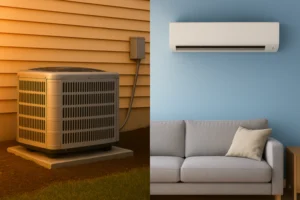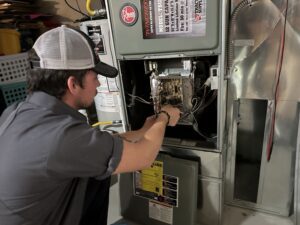Is Your AC Ready for a Colorado Summer?
Is Your AC Ready for a Colorado Summer? Top 5 Reasons to Schedule Your Spring AC Tune-Up with Fort Collins Heating & Air Conditioning As
Is Your AC Ready for a Colorado Summer? Top 5 Reasons to Schedule Your Spring AC Tune-Up with Fort Collins Heating & Air Conditioning As

When it comes to energy-efficient heating and cooling, homeowners across Fort Collins and Northern Colorado are increasingly choosing between heat pumps and mini split systems.

Your HVAC system is often overlooked, but its importance cannot be overstated. The consequences of ignoring preventive care can be significant. Regular maintenance not only

In case you haven’t heard, manufacturers must stop the production of R-410A HVAC systems by the end of this year. The impending phaseout of R-410A,
Summer is the season when your air conditioning (AC) unit works overtime to keep your home cool and comfortable. But what happens when your AC,
When it comes to replacing your air conditioning system, understanding the costs involved can help you make an informed decision. While the price can vary
Fort Collins Heating & Air Conditioning.
All rights reserved. | Powered by Imprint Digital